Meeting Information
We run regular online reading groups and monthly meetings to promote the reading and discussion of philosophy. If you are interested in joining our discussions, please fill out the interest form.
We keep a record and a report for each meeting, which can be accessed below:
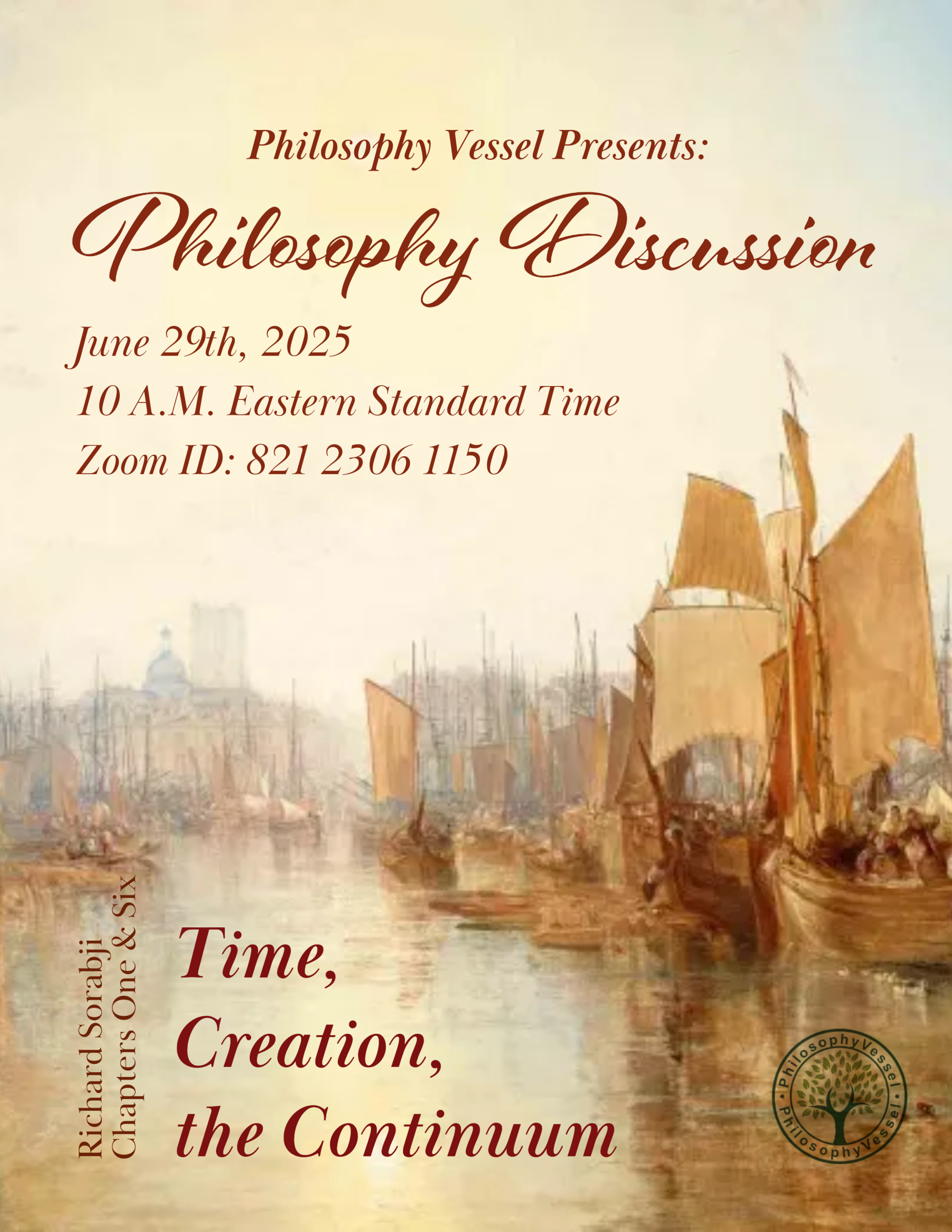
06.29.2025 Philosophy Discussion
Whilst science offers models for time and space and mathematics outlines the structure of the continuum, deeper questions remain about the natural world. Join us at our next meeting, where we will discuss Richard Sorabji’s Time, Creation and the Continuum, Chapters One and Six. We will explore the fundamental mysteries of the universe through the various lenses like metaphysics, cosmology, and mathematics, seeking insight into theories of natural philosophy and the sciences. We build on our previous conversations about time and consciousness, advancing our understanding of reality and existence.
If you are interested in joining our meetings, please fill out the interest form!
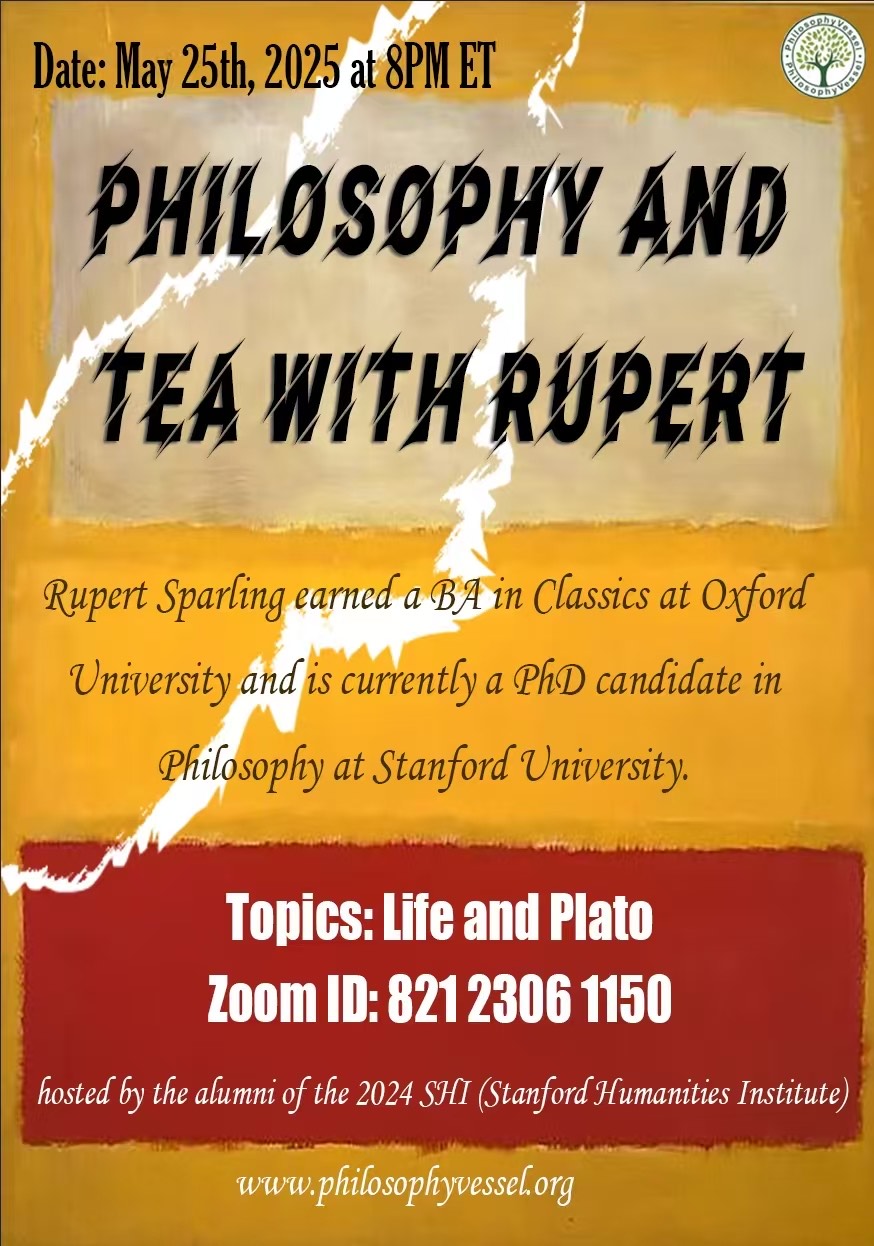
05.25.2025 Philosophy Discussion
Join us for philosophical tea on May 25th, 8pm ET with our guest speaker Rupert Sparling. He will be talking with us about his specialty (besides tea): Plato! Our meeting will be whimsical, insightful, and open to all!
Rupert Sparling earned a BA in Classics at Oxford University and is currently a PhD candidate in Philosophy at Stanford University.
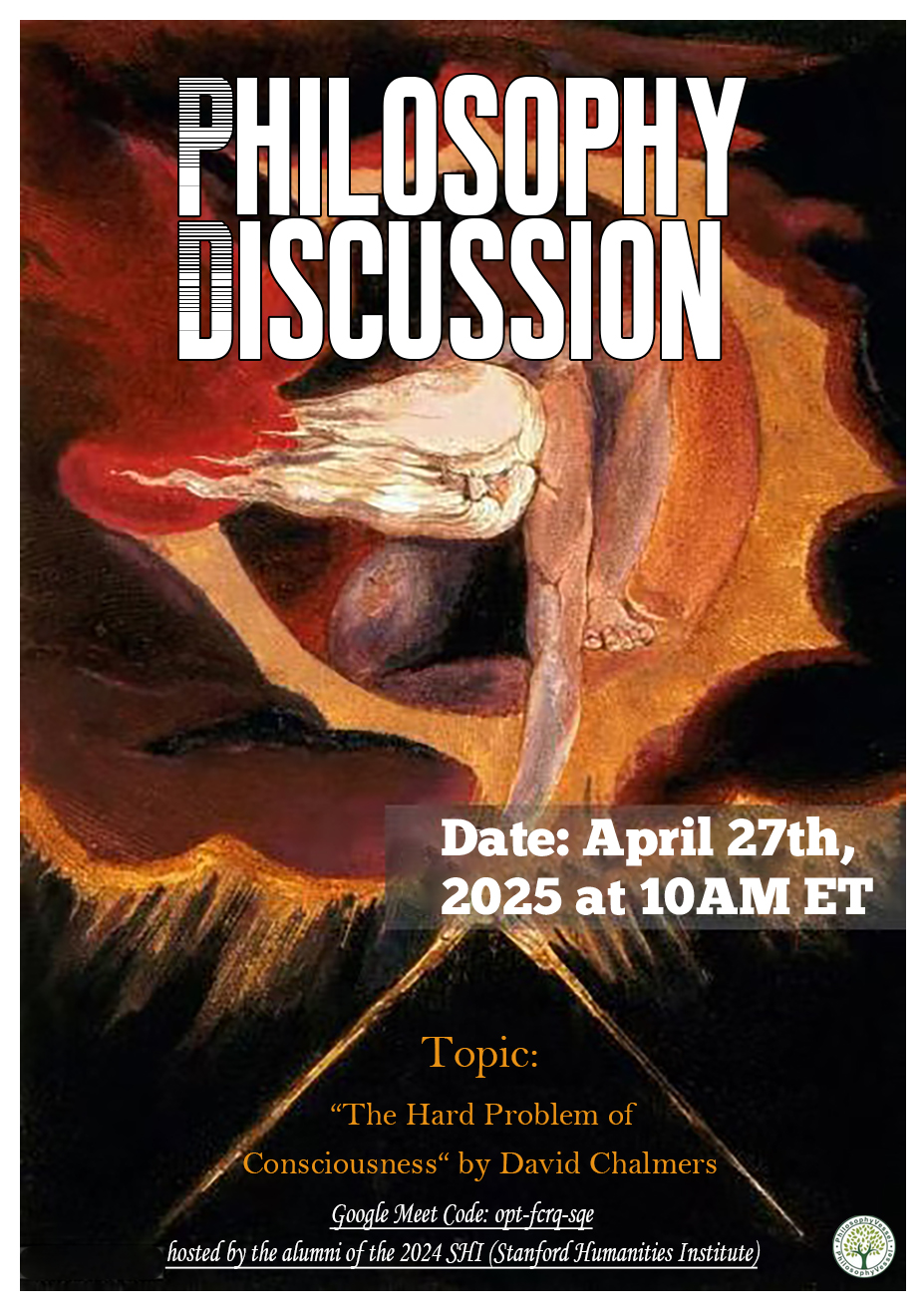
04.27.2025 Philosophy Discussion
How do you explain the experience of being conscious?
Advancements in cognitive science has allowed us to better understand what it means to be conscious, but only address the physical systems and processes correlated with consciousness, leaving a significant conceptual, explanatory gap. At this meeting, we pondered such mysteries of the mind as we discussed David Chalmers’ “The Hard Problem of Consciousness,” delving into the interdisciplinary field of the philosophy of the mind, along with neuroscience, computer science, mathematics, epistemology, and metaphysics!
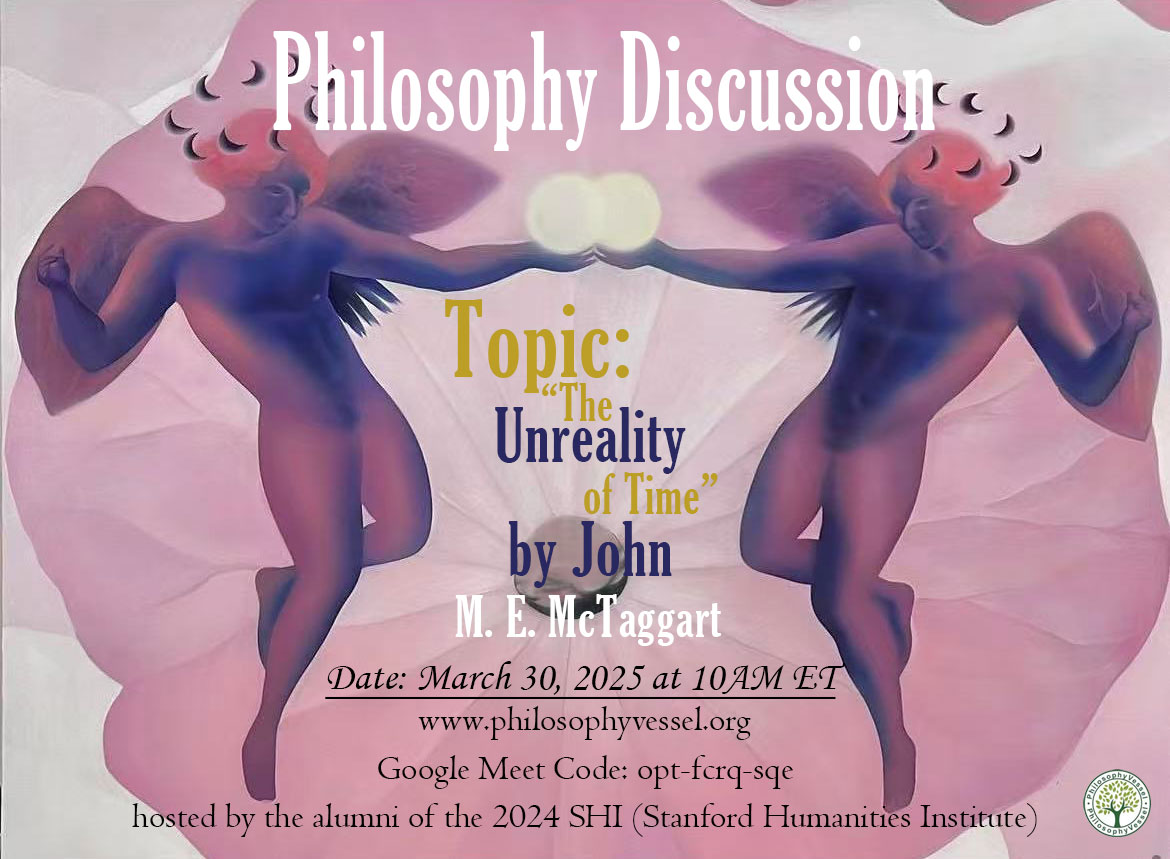
03.30.2025 Philosophy Discussion
We all have a sense of time. Time provides structure and substance to our lives and dictates things happening to and around us. Time certainly feels real, but is it real? How could one deny what lays the foundation for the nature of the world and our experiences?
Slightly switching gears from our previous meeting topics, we read and discuss “The Unreality of Time,” in which McTaggart boldly, and perhaps alarmingly, claims that time is unreal. We seek to challenge our perception of time, of the reality we feel natural to and comfortable with accepting.
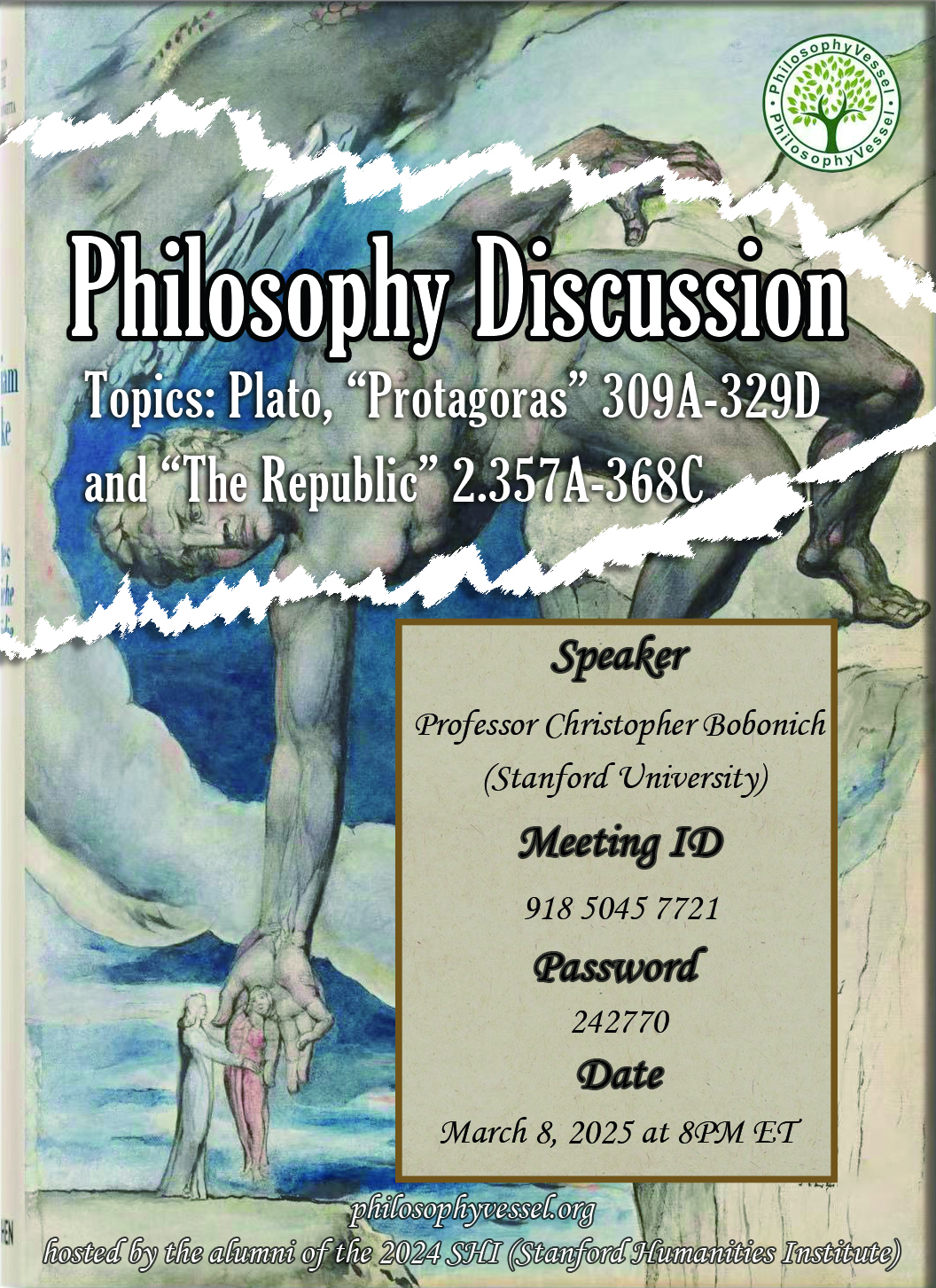
03.08.2025 Philosophy Discussion
At this exciting meeting, Professor Bobonich talked about the origin of justice and the purpose of punishment. Delving into ancient philosophy and the history of philosophy, we discussed Plato’s “Protagoras” 309A-329D (especially 317E-329D, Protagoras’ Great Speech) and the “Republic” 2.357A-368C.
Christopher Bobonich is a Clarence Irving Lewis Professor of Philosophy at Stanford University. He specifically works on topics in Ancient Greek Philosophy, Political Theory, and Ethics, with a particular emphasis on Plato. Vide: Christopher Bobonich | Department of Philosophy
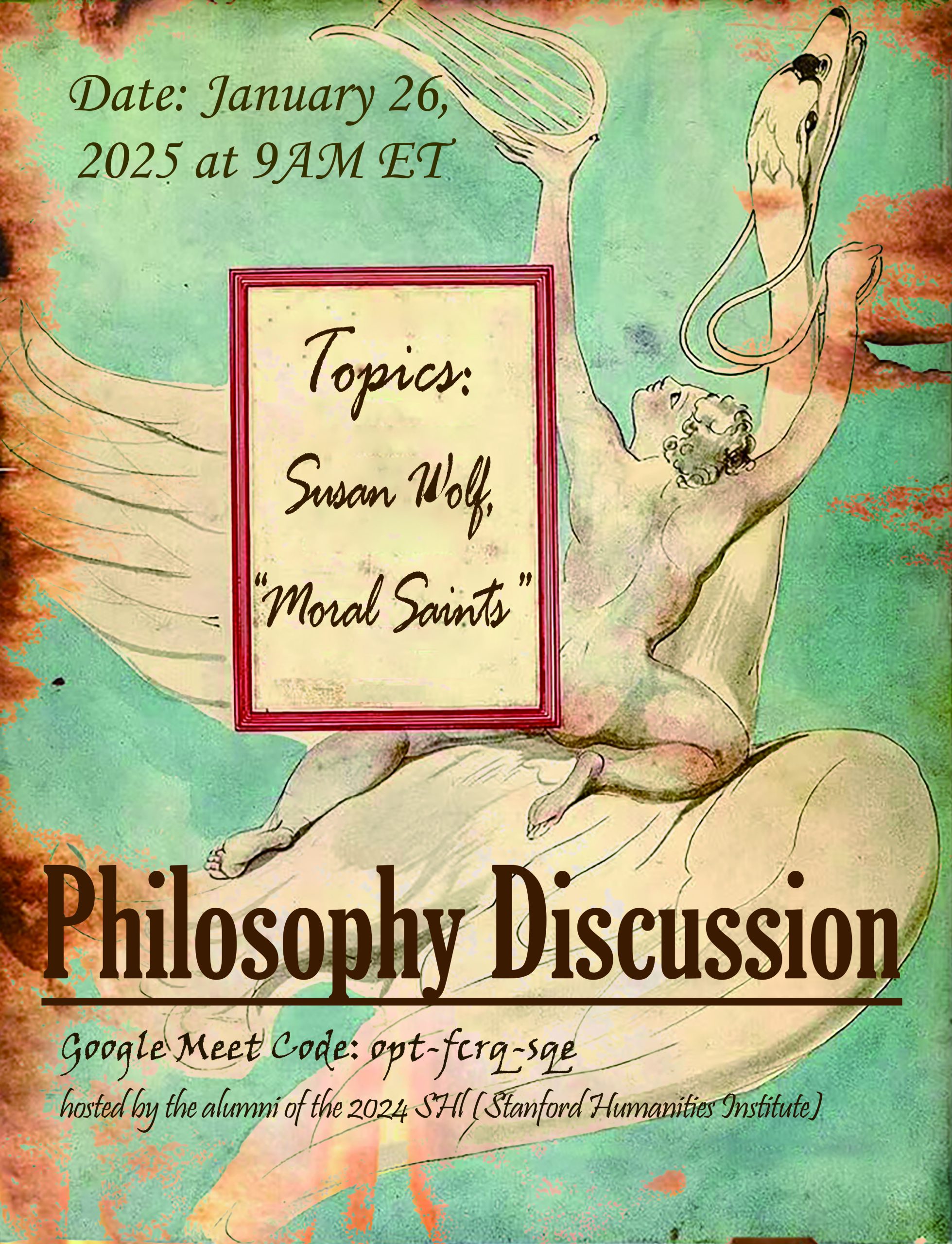
01.26.2025 Philosophy Discussion
After examining Friedrich Nietzsche, we move on to Susan Wolf, a distinguished professor of philosophy at the University of North Carolina, Chapel Hill. We read her well-known paper ‘Moral Saints,’ discussing and re-evaluating morality.
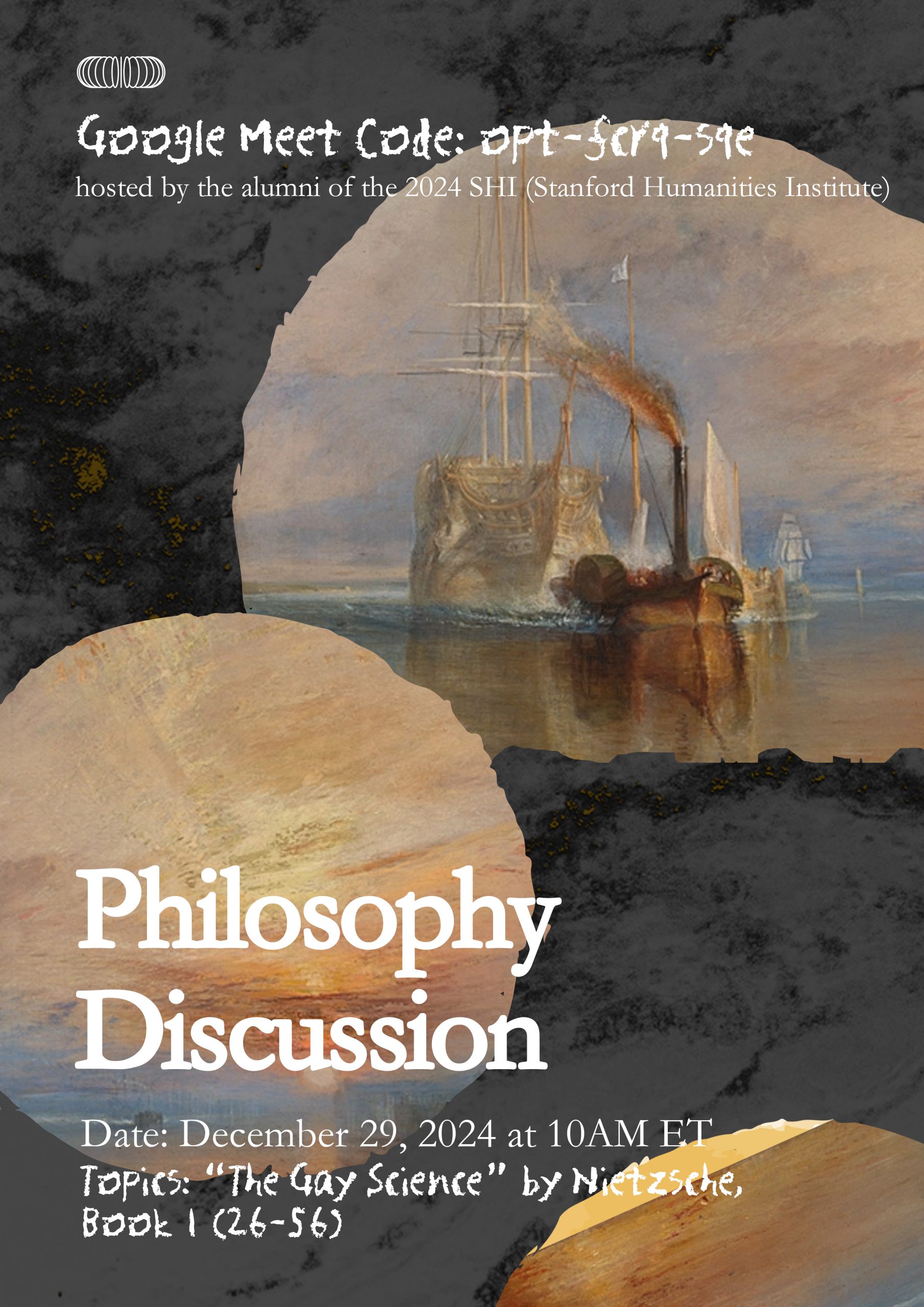
12.29.2024 Philosophy Discussion
This meeting, centered around the final sections 26-56 of Book II, concluded our discussion on Friedrich Nietzsche’s “The Gay Science.” We intimately explore his aphorisms and bite-sized assessments of the inner workings of society and humanity.
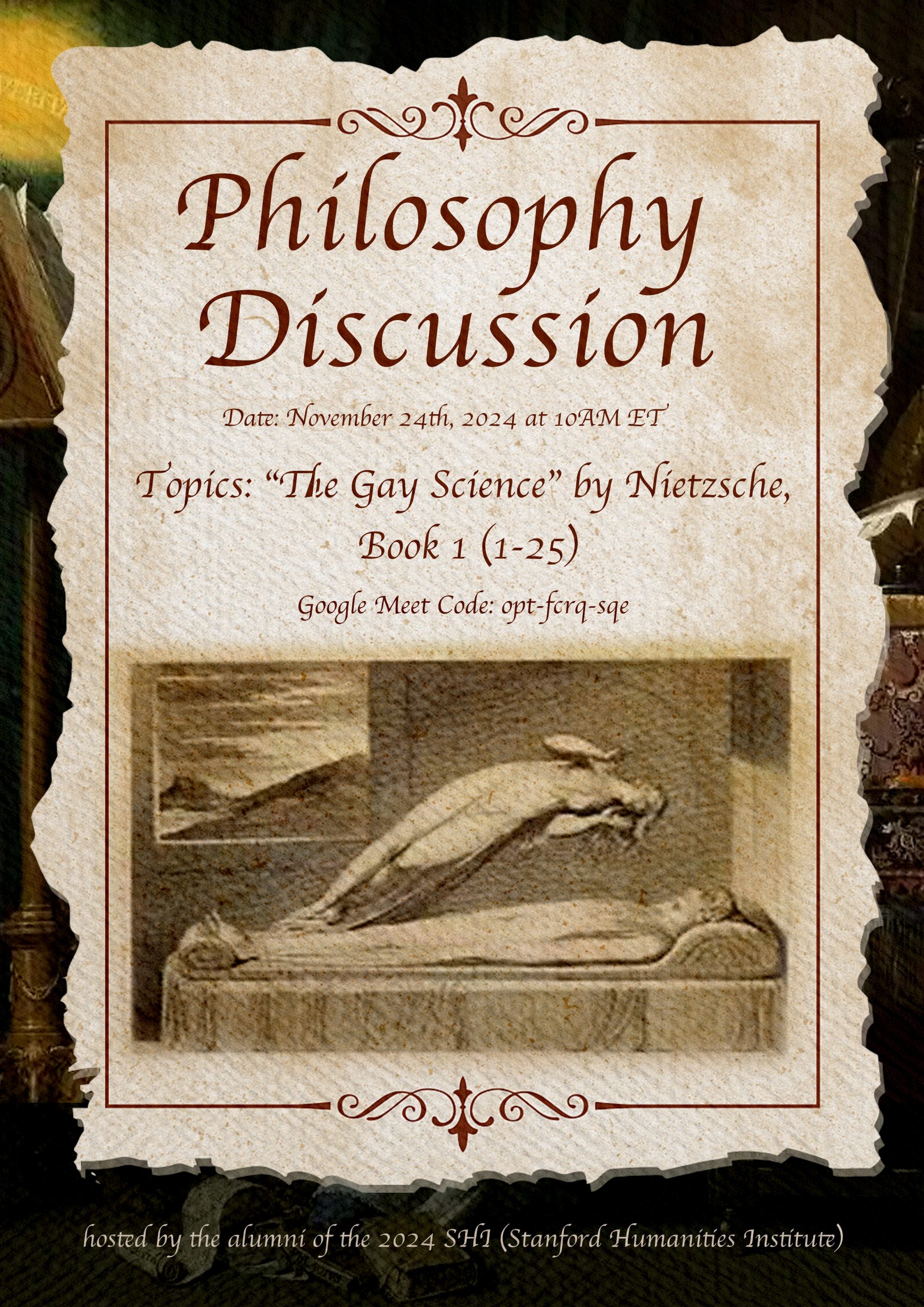
11.24.2024 Philosophy Discussion
We examine Books 1-25 of ‘The Gay Science’ by Friedrich Nietzsche, debating on the novelty and relevance of his ideas and enjoying his digestible and passionate prose.
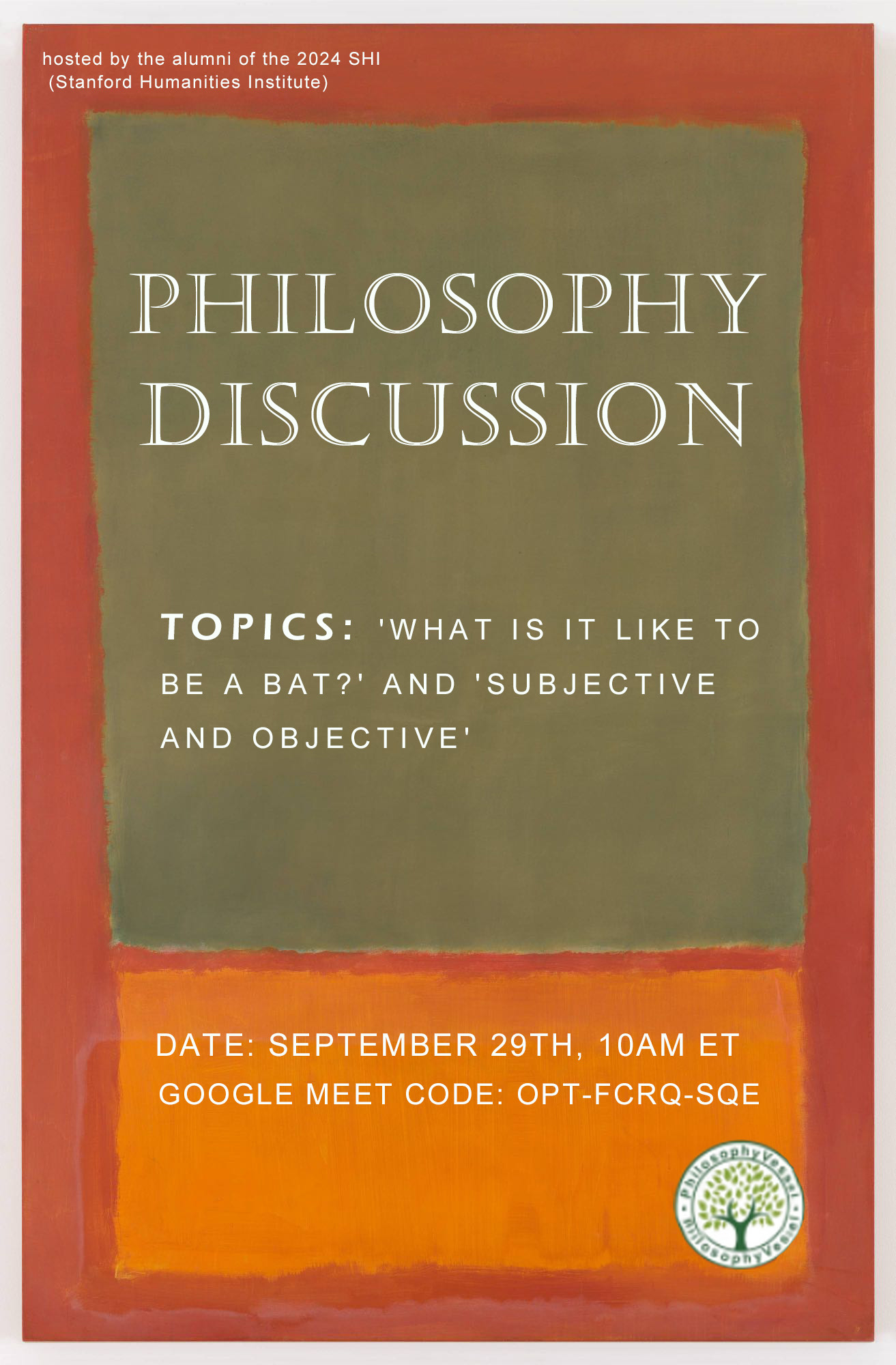
09.29.2024 Philosophy Discussion
We finish up Thomas Nagel’s “Mortal Questions” with the essays ‘What is it Like to be a Bat?’ and ‘Subjective and Objective.’ We place ourselves in the positions of non-humans, like bats and Martians, and discuss the nature of reality.
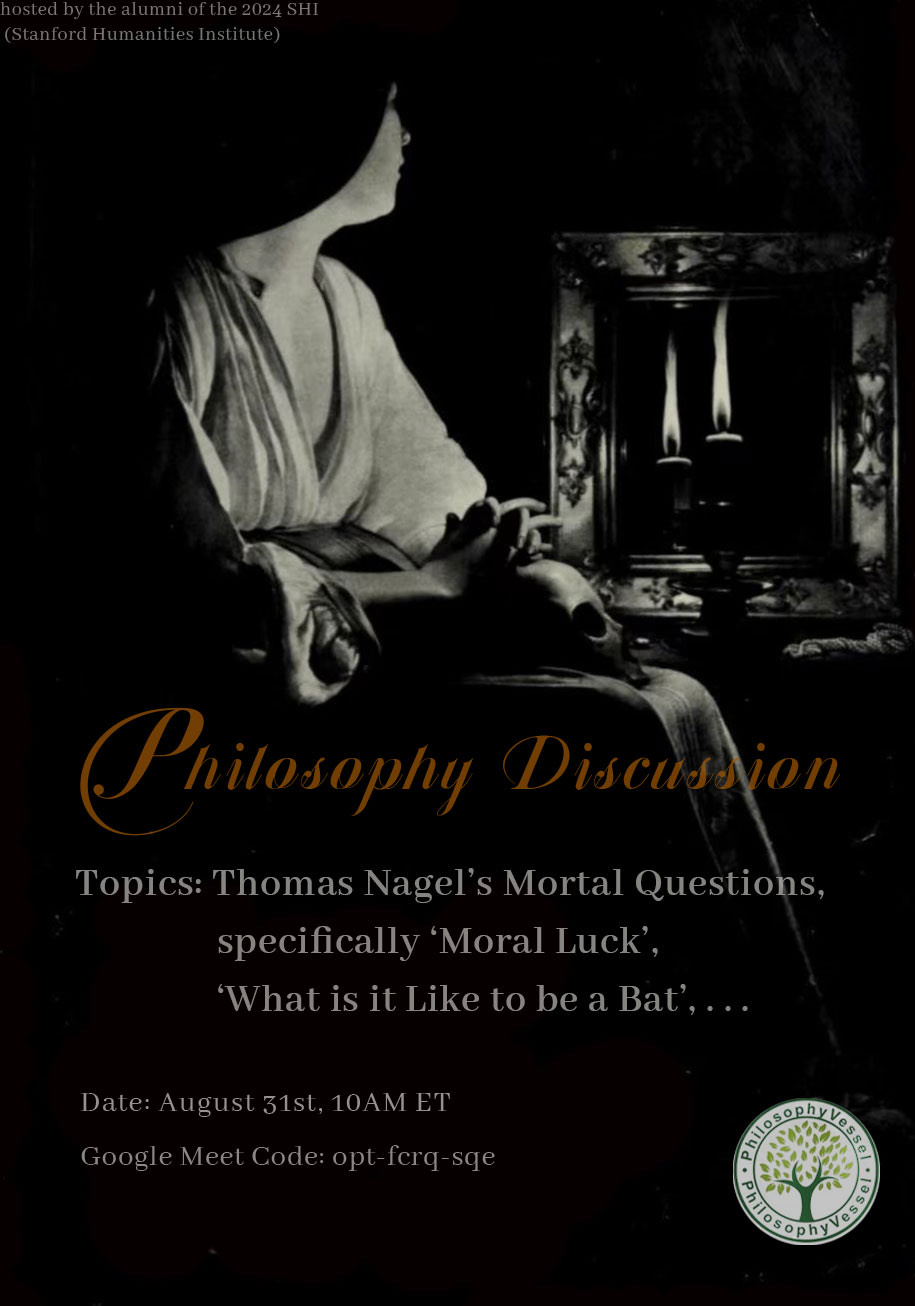
08.31.2024 Philosophy Discussion
We read Thomas Nagel’s essays ‘Moral Luck’ and ‘Brain Bisection and the Unity of Consciousness’ from his book “Mortal Questions,” analyzing how luck can affect our moral judgments and how cases of brain bisection complicate our understandings of consciousness.
